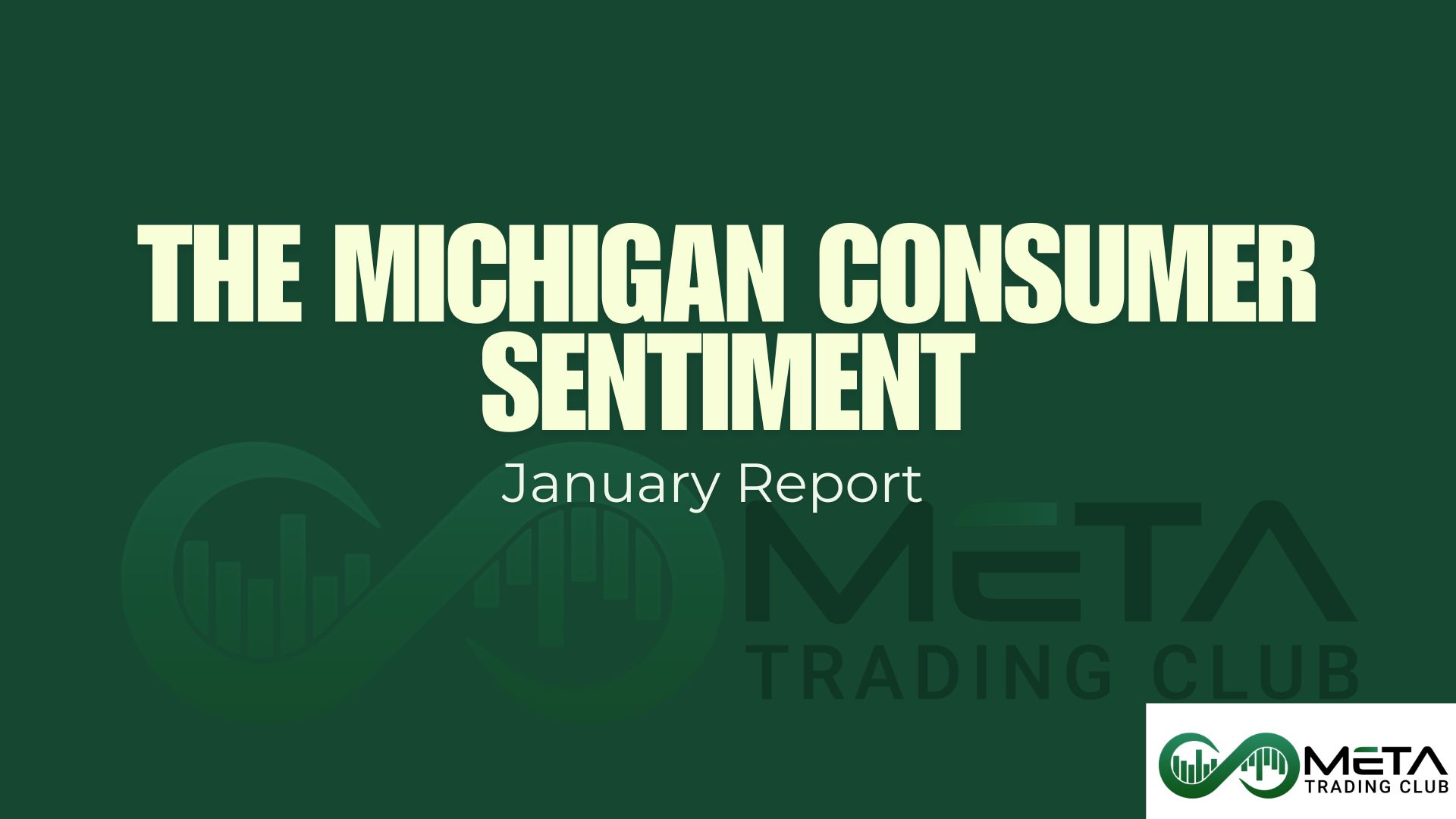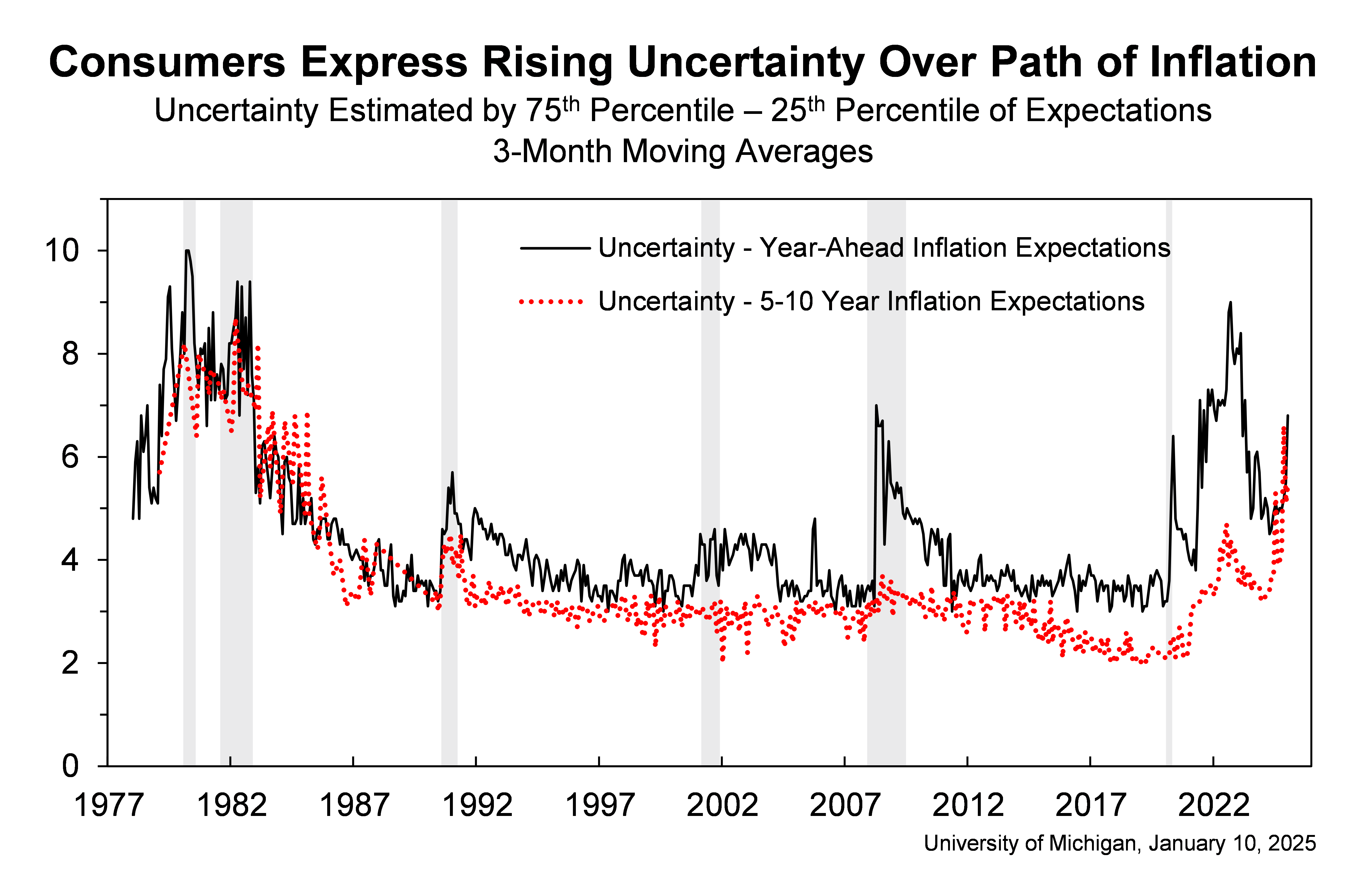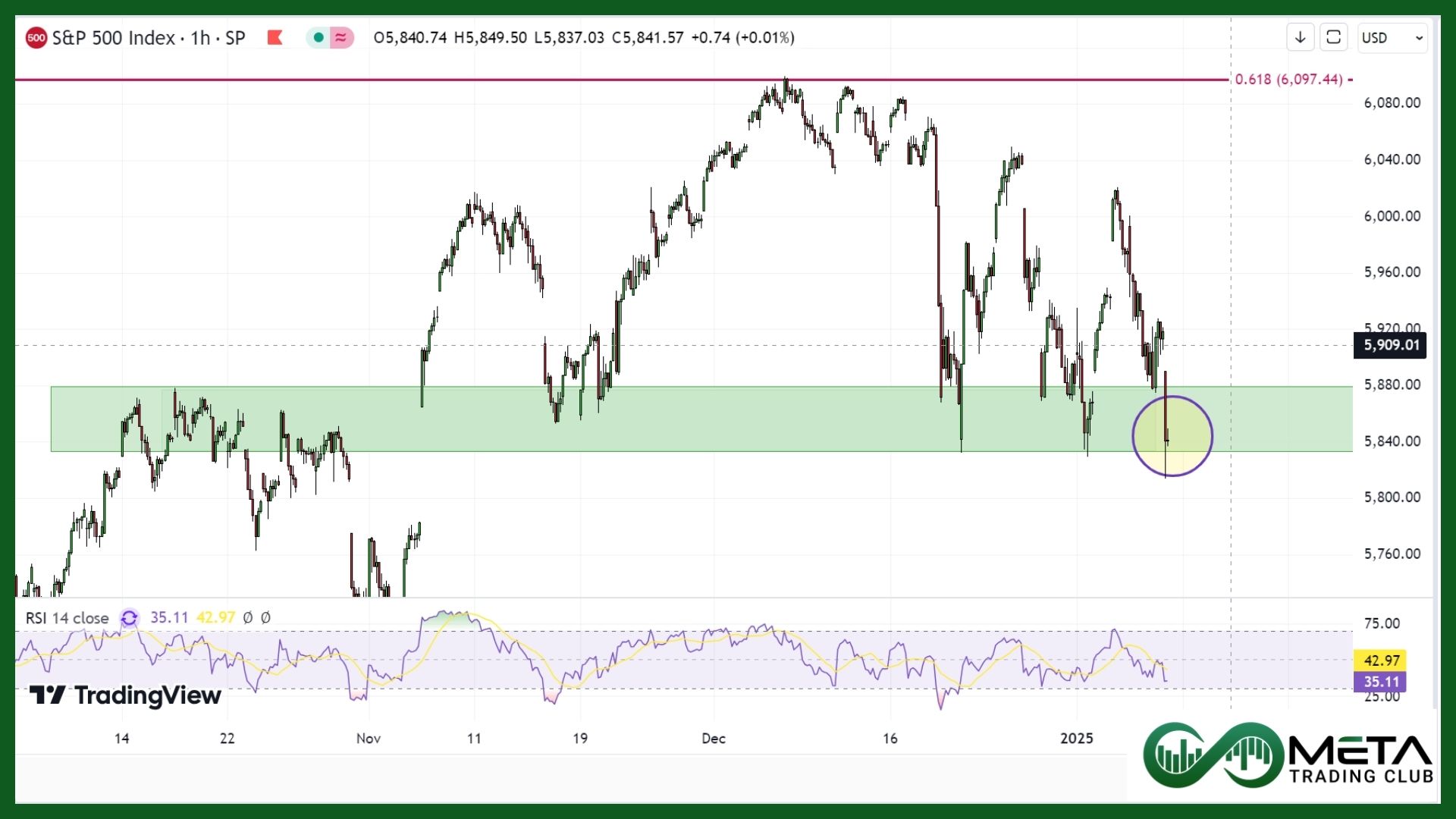The Michigan Consumer Sentiment Index (MCSI) is a monthly survey conducted by the University of Michigan that measures consumer confidence levels in the United States. The survey gathers data through telephone interviews, focusing on consumer expectations for the economy, their current financial health, and the prospects for longer-term economic growth.
Consumer sentiment is considered a valuable economic indicator as it reflects the overall health of the economy based on people’s opinions and feelings. The MCSI takes into account short-term and long-term economic expectations, providing insights into consumer spending and saving behavior
Michigan Consumer Sentiment: January 2025
The latest consumer sentiment data for January 2025 reveals mixed signals about the current economic conditions and future expectations. The Index of Consumer Sentiment slightly decreased to 73.2 from 74, marking a 1.1% month-over-month decline and a 7.3% year-over-year decrease.
The Index of Current Economic Conditions rose to 77.9 in January, showing a 3.7% month-over-month increase. However, it experienced a 4.9% decline compared to a year ago.
The Index of Consumer Expectations fell to 70.2 in January, reflecting a 4.2% month-over-month decrease and an 8.9% year-over-year decline from January 2024.
Consumer sentiment was mostly stable in January, decreasing by less than one point from December, which is within the margin of error. Personal financial views improved by about 5%, but the short-term economic outlook dropped by 7% and the long-term outlook by 5%. This means people are less worried about current living costs but more concerned about future inflation.
Year-ahead inflation expectations jumped from 2.8% in December 2024 to 3.3% in January 2025, the highest since May 2024. Long-term inflation expectations also rose to 3.3%. This noticeable change was seen across different groups, especially lower-income consumers and Independents.
Inflation uncertainty has increased over the past year, though it is still lower than the levels of the 1970s.
Impacts of the Report on Stock Market
The preliminary results for January 2025 showed a slight decline in consumer sentiment and a significant increase in inflation expectations. This had a notable impact on the stock market. The S&P 500 experienced a slight decline due to mixed consumer sentiment data and rising inflation expectations. Investors were cautious, which led to a drop in the index. However, the S&P 500 has reached a strong support area.
Higher inflation expectations suggested that the Federal Reserve might keep interest rates higher for longer. This puts additional pressure on the index.















